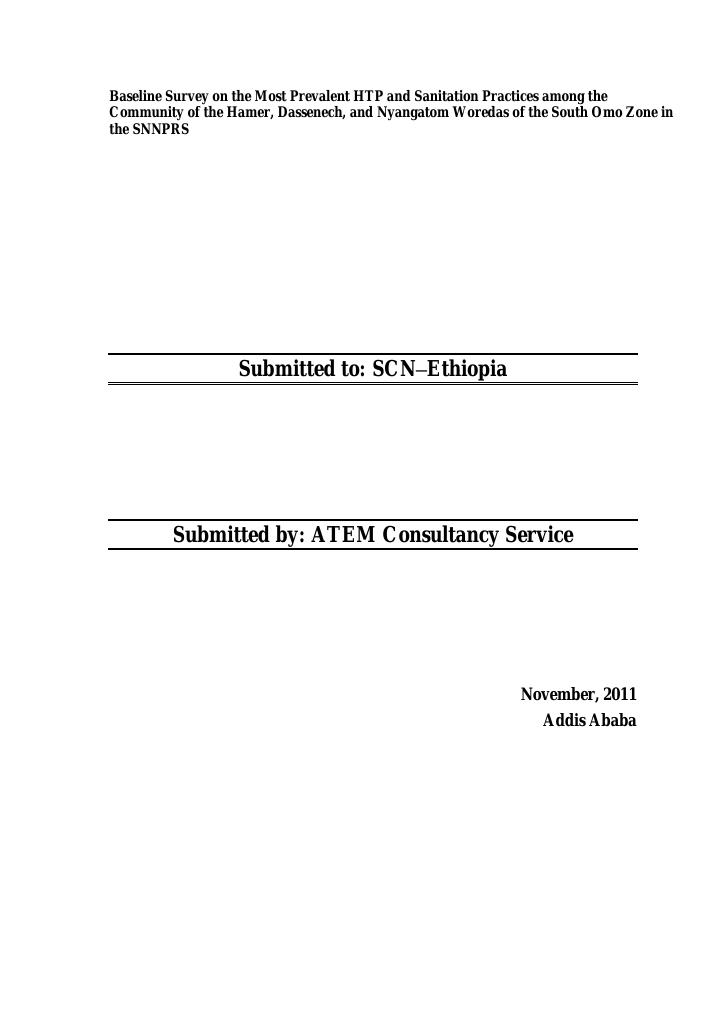Studie
Baseline Survey on the most Prevalent Harmful Traditional Practices (HTPs) and Sanitation Practices in Hamer, Dassenech and Nyangtom Woredas of South Omo Zone of SNNPR, Ethiopia
In South Omo there are 16 indigenous ethnic groups with different traditional practices. 7 of them are living in Hamer, Dassenech, and Nyangtom districts, where the study was conducted. Previous studies have documented severe Prevalent Harmful Traditional Practices (HTPs) like Mingi (when a child is considered cursed and is killed to stop it from bringing evil into the community), forced abortion, whipping during cattle jumping and others in these three districts. SCN-E recently launched a new project entitled Supporting Community Changes through the HTPs and Promotion of Health and Sanitation for the Wellbeing of Children in the studied districts. The main objective of this baseline survey is to generate information including basic indicators of Knowledge, Attitude and Practice (KAP) on HTP and Water, Sanitation and Hygiene (WASH) as a benchmark to compare post project intervention. The baseline also include the identification of activities performed, challenges and gaps, to come up with feasible recommendation for the success of the project and sustainability of the results expected to be achieved by the project.
